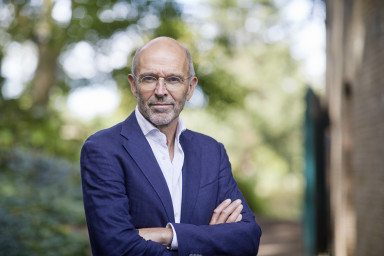05 May, 2025, 17:30Auditorium, HCU
Prof. Dr. Maarten Hajer (Utrecht University)
Urbanism in a radical age: Using exhibitions as dramaturgies of change

Image © Christiaan Kouwels.
Bio
Maarten Hajer is a distinguished professor of urban futures and futuring at the Faculty of Geosciences of Utrecht University and director of the Urban Futures Studio (UFS). Maarten studied politics as well as urban and regional planning at the University of Amsterdam (UvA) and holds a D.Phil. in political science from Oxford University. He has worked at the universities of Leyden and Amsterdam and at the Ludwig Maximilian University in Munich and has also held many positions as an advisor to governments.
Together with the team of the Urban Futures Studio, he has curated many exhibitions over the last ten years. Highlights include his curatorship of the 2016 International Architecture Biennale Rotterdam (IABR) and of the public exhibition and manifestation ‘Places of Hope’, which was part of the official programme of Leeuwarden, Cultural Capital of Europe 2018.
He is the co-author of Neighbourhoods for the Future: A Plea for a Social and Ecological Urbanism (2020), and his new book, Captured Futures: Rethinking the Drama of Environmental Politics (co-authored by Jeroen Oomen) is due to be published at the end of May 2025 from Oxford University Press.
Abstract
People have always projected their images of the future onto cities. But why have certain images of the ‘good city’ persisted while others have not? This is now an urgent question, as scientific reports are telling us that in order to prevent environmental disaster, we need to rethink how we build and organize cities. In his talk, Maarten Hajer explores a ‘socio-ecological urbanism’. He considers ways in which such new socio-ecological futures can take hold in the societal imagination. In particular, he explores how practices such as exhibitions and manifestations can be used to gain traction in the aspirational futures of citizens and businesses alike. His approach of ‘futuring’ reorders the roles of various protagonists, including politicians, academics, and citizens, and creates entry points for a new urbanism in our radical age.